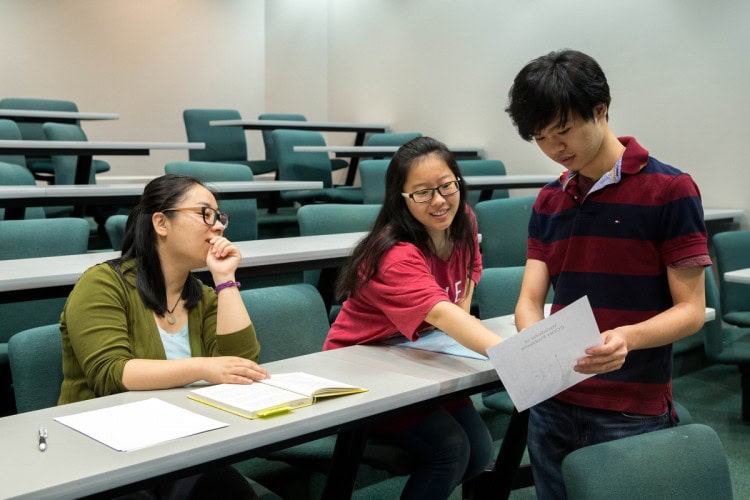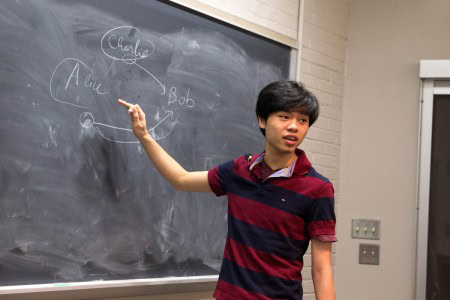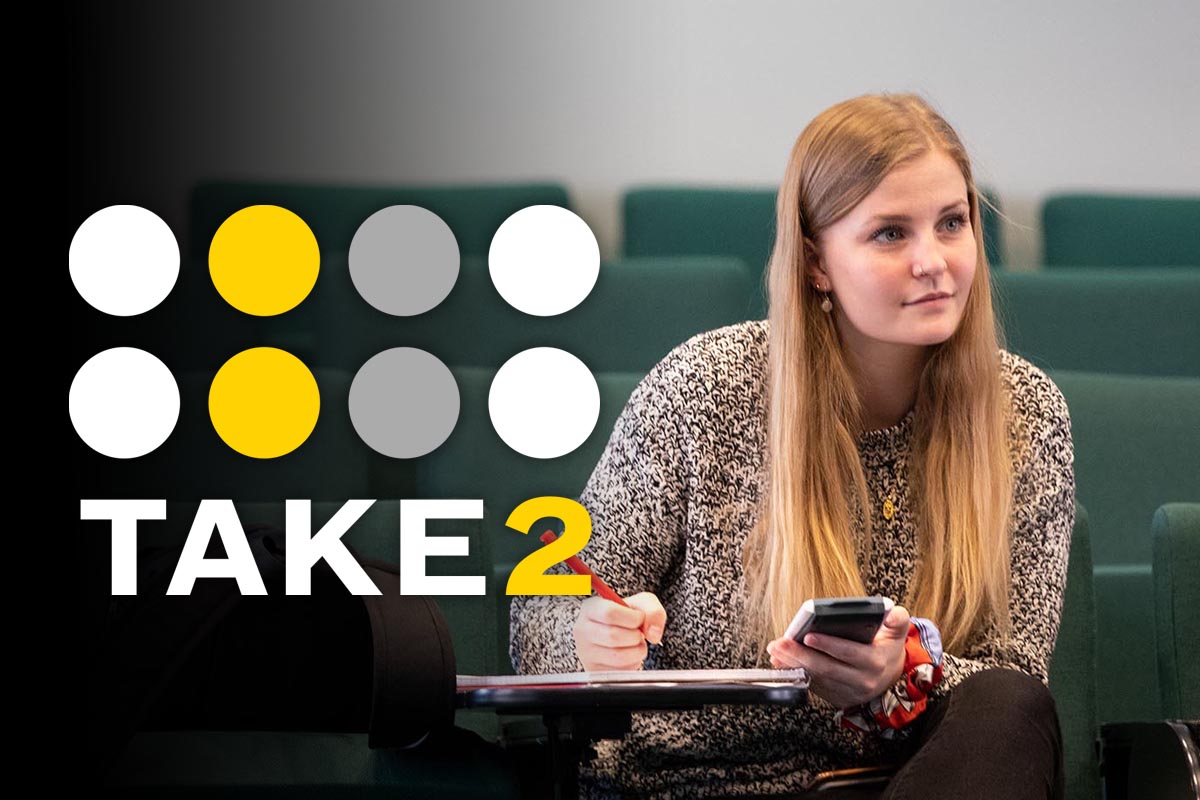Making Internet security add up

Mathematics professor Jia Wan observes as Mengjin Sun ’19 and Nhut Dang ’18 study an equation.
Two Randolph students are using Summer Research as an opportunity to examine the critical role that math plays in cybersecurity.
Mengjin Sun ’19 and Nhut Dang ’18 are working with mathematics professor Jia Wan to analyze the Diffie-Hellman problem (DHP). The DHP is a mathematical problem first proposed by Whitfield Diffie and Martin Hellman in the context of cryptography. The motivation for the problem is that many security systems use mathematical operations that are fast to compute, but hard to reverse. For example, they enable encrypting a message, but reversing the encryption is difficult.
The Diffie-Hellman protocol is one of the most common methods in which two computer users can generate a shared private key to communicate across an insecure channel. The Summer Research group at Randolph is looking for other solutions.
“A lot of people believe the Diffie-Hellman protocol is a harder lock that can be used for security techniques,” Wan said. “We are still suspicious, so that’s the reason for the project.”

Nhut Dang ’18 explains his work.
The group is taking a very business-like approach to their project. Each morning, Sun and Dang meet with Wan to discuss their goals for the day and share their progress from the previous day. They also hold brainstorming sessions and conduct independent research.
“They are both very self-driven and highly motivated,” Wan said. “A lot they are handling is not even touchable for normal undergraduate studies. The point of this project is to give them the opportunity to explore the problem in depth and give them a chance to reach a bit beyond their level of understanding. That’s a crucial skill in grad school or at a future job.”
Thanks to the project, both Sun and Dang are gaining practical, hands-on experience in their respective fields. Sun is a mathematics major and hopes to one day become a video game developer.
“I am glad to take any opportunity I can for a good math project,” she said. “In Summer Research, it’s like I’m not even a student and I’m already working at a job. It’s a good feeling.”
Dang is an engineering physics major and is especially interested in computer science. “Internet security is a really important part of computer science,” he said. “Knowing about the Hellman problem and the math behind it is going to help me a lot when it comes to computer science as a career.
“Summer Research is fun and fascinating because you come and explore the topic, and you’re not sitting in a class and listening to a lecture,” Dang added. “It also helps you build other skills like giving presentations. And if I make a mistake or have any questions, professor Wan is there to help.”
Wan believes both students have bright futures.
“They have the opportunity to be pushed beyond their comfort zones and exposed to a new world,” Wan said. “I’ve enjoyed watching them grow, and I think after this project they will be more adept in all of their academic pursuits.”
Tags: Jia Wan, mathematics, Mengjin Sun, student research, summer research, Summer Research 2016
